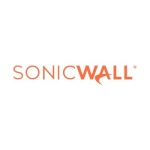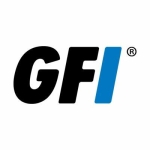What is our primary use case?
We use Fortinet FortiGate-VM for a constrained firewall and comprehensible security solution. Currently, I'm involved in implementing FortiGate and FortiManager for a customer project over the past month, and Fortinet has proven to be quite effective in this regard.
What is most valuable?
Regarding specific features, I appreciate the option for external selection, where you can choose either to use a default or create a self-description. This simplifies the process compared to other vendors that require creating a test extension profile and then applying it to the installation. With FortiGate, there is a streamlined approach. From the benefits perspective, clients mainly see cost reduction, especially with FortiGate VM Firewall, as it eliminates the need for additional hardware.
What needs improvement?
The product is satisfactory. I haven't identified any features to improve, and based on the number of deployments I've handled with FortiGate-VM, there haven't been any complaints from the customer's side.
For how long have I used the solution?
I have been using Fortinet FortiGate-VM for the past five years.
What do I think about the stability of the solution?
Fortinet is a stable and user-friendly solution. The configuration is straightforward, and it provides a secure environment. I recall a challenge where a customer was using VDOM to segment their networks, but faced issues with communication between firewalls. Through online research, I discovered a tool to replace Fortinet, and it resolved the issue. During a critical migration for a large customer with six hardware firewalls, Fortinet proved reliable and prevented the possibility of mistakes. The GUI interface is well-organized, especially the security tab, making it easy to navigate. Fortinet simplifies network and security tasks, making it accessible for those with a basic understanding of networking and security concepts. Overall, as a vendor, Fortinet stands out for its streamlined approach, avoiding the need to navigate between multiple locations for configuration.
How are customer service and support?
I haven't personally tried Fortinet's technical support, but according to my colleague who has used it, the experience was not positive. He mentioned that the support process is not as direct and efficient as Cisco's. In Cisco, when there's an issue, you can call, initiate a case, and the support engineer can join you directly for troubleshooting. However, with Fortinet, it seems the process involves working on the case independently, and the support requests are assigned to different engineers.
How was the initial setup?
Fortinet installation and configuration instances are not complicated at all. For the initial setup, I have two options: I can either edit it from the CLI directly or go through the GUI in the ASHA setup. Having these two options is convenient and works well for me. I handle the deployment process independently. Once I ensure that all the necessary requirements, such as IP configurations and external/internal network settings, are ready, I can complete the deployment in around one to two hours. The process is straightforward and doesn't require additional resources. To understand the firewall verification and its communication within the internal network, I focus on factors like whether it should be isolated or placed between the firewall and terminal network. Traffic protocols like OSBAM play a crucial role, and configuring it is both easy and efficient. For external network communication, configuring interfaces, especially when dealing with an ISP's line, is straightforward. The SD WAN features in FortiGate-VM are significant. Connecting two firewalls involves attaching them to an SD WAN profile, and then applying the configuration to ensure seamless communication without complexities. Additionally, for VPN connections, the VPN wizard simplifies the process, eliminating the need to worry about encryption or authentication codes.
Working with platforms like Azure is also hassle-free, involving basic steps such as entering IPs and selecting suitable sites. Comparatively, this process is more streamlined than other vendors where creating phase one and testing are often required for VPN connections. Overall, the FortiGate-VM deployment is straightforward, allowing for easy troubleshooting of errors and identification of hardware locations.
What other advice do I have?
When advising the team for cost reduction, I suggest going with the VM if there's no budget. However, if there is a budget, I recommend purchasing the hardware. For all vendors, technically speaking, hardware is considered better than VM. However, for Fortinet, the difference between VM and hardware is mainly budget-related. If the customer has a budget, it's advisable to purchase the hardware. When recommending from the sales team's perspective, if the customer has a budget, they will suggest going with hardware. If there's no budget, the recommendation is to opt for VM, especially if the customer is working with Azure or AWS. The difference between VM and hardware lies primarily in patches, and overall, everything is satisfactory. One aspect worth noting is that during VM deployment, checking connectivity between the hypervisor, distribution switch, and network firewall is required. In contrast, for hardware, once the configuration is complete, connectivity is straightforward.
As for my overall rating of the FortiGate VM solution on a scale from one to ten, with one being the worst and ten being the best, I would rate it as a ten.
Disclosure: My company has a business relationship with this vendor other than being a customer. Implementer


















